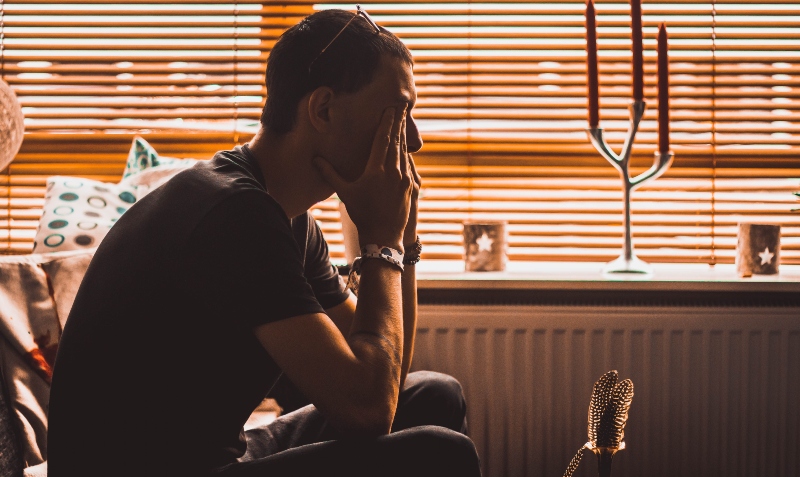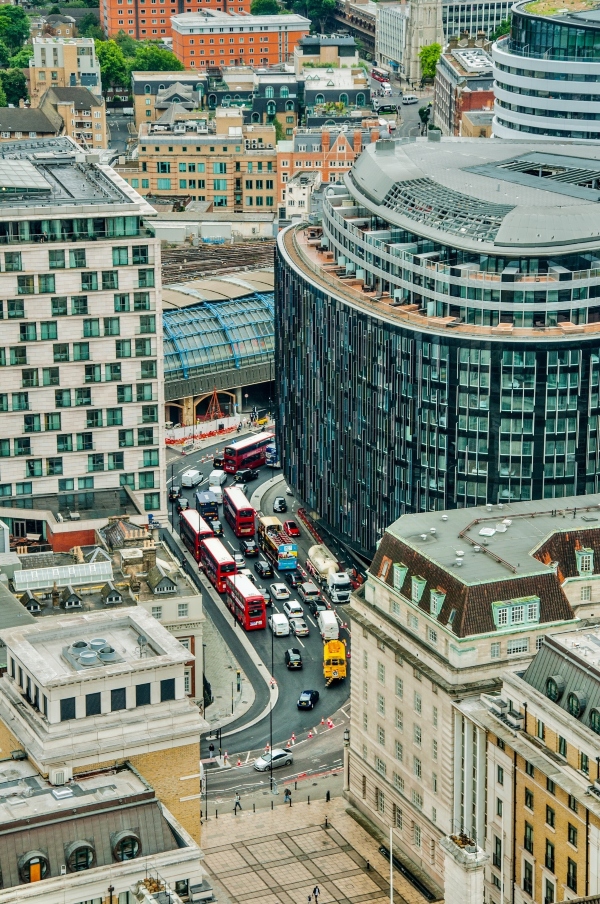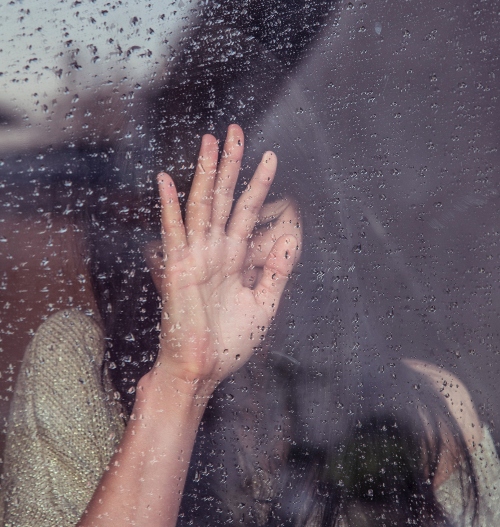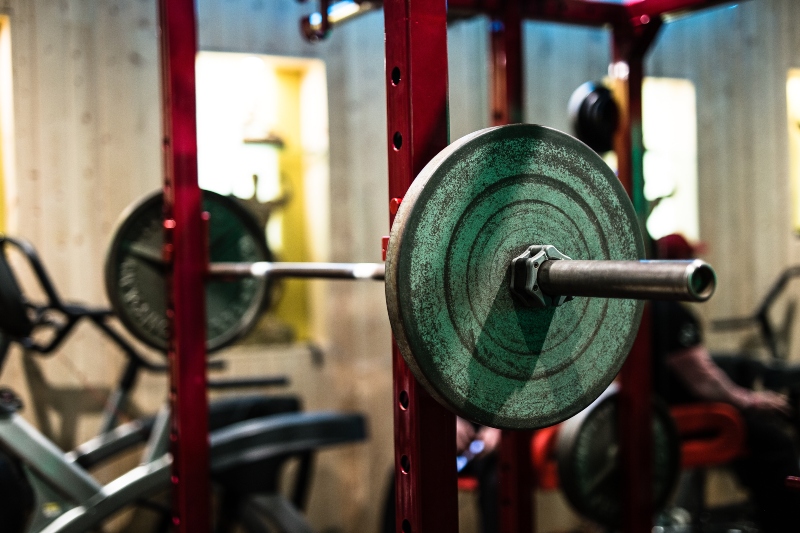Why is it SO challenging to live through this pandemic?
A look at four psychological processes that are at work within us that combine to make this an extremely taxing time on our brains. By Darren Blaney

These are difficult times for so many of us. However, have you ever stopped to wonder why we are finding it so challenging? After all, we’re people of faith aren’t we? We’re people of sound and resolute mind, generally speaking. If you stop and think about it...
We still have food in the shops...
We have running water in our homes, and gas and electricity...
Most people we know have not been blighted by the virus...
So why does it feel so difficult to live through all this? Why are so many people's mental and emotional health suffering so much? Even many people who would consider themselves robust and resilient are finding it a struggle.
Why?
I've had it suggested to me that perhaps it's lack of faith! I don't think so, though our faith will definitely be tested through all this. If you are feeling either bewildered as to why it feels such a struggle, or guilty that you're not finding it easy to cope when you think you should, I hope that this article will shed some light on what is happening to you. You are not weak or showing a lack of faith. You are a human being with a human mind - a mind that isn't designed to cope well with what we are going through.
I want to share with you four, perfectly understandable, psychological processes that are at work within us that combine to make this an extremely taxing time on our brains. They are:
-
The Re-compression Effect
-
The Relationship Matrix
-
The Subconscious Habit Loop
-
The Need for Coping Mechanisms
Let us examine them, one at a time.
The Re-compression Effect
Do you know when the average clergyman is most at risk of having a breakdown? Apparently, one of the highest risk periods is upon his or her return from sabbatical!
Ministry can be like a pressure cooker. When the pastor goes off for three months of study and rest, he or she comes out of that pressure cooker. Then, having been out of it for so long, their mind simply refuses to go back into it again. It is a safety mechanism. It says, "I am not going to allow you to put me under that kind of pressure ever again."
 A similar, yet less dramatic, example is found in those who have driven in London. They may have driven in the stressful, slow-moving, high-congestion roads for years.
A similar, yet less dramatic, example is found in those who have driven in London. They may have driven in the stressful, slow-moving, high-congestion roads for years.
Yet when they move away to somewhere else, within a very short time they say, "I could never drive in London again." And they mean it!
The mind will not countenance going back to such levels of stress.
We were in lockdown for three months, then during the summer the threat of the virus receded, restrictions were lifted and life started to return to a semblance of normality. Now we are starting to go backwards again. Old restrictions are returning. New ones are being added. Our minds simply cannot cope with the re-compression. They are refusing to go back to such high levels of stress and disorder.
As an aside, to those who scratch their heads at all this and wonder why other people struggle so much, please remember that the less impact that the first lockdown had on your everyday life, the less stress you will feel at the thought of heading back that way.
Those who feel the most anxiety tend to be those who experienced the worst disruption, and deep inside their minds are screaming "I am not going back there."
The Relationship Matrix
Each one of us has a network of personal relationships; family, friends, work-colleagues. This web serves many purposes. It helps us forge our sense of identity. We know who we are in part because we are a father to x, a friend to y, or a work-colleague to z.
Also, we are relational beings. Our ability to communicate, to build and share meaningful relationships, is at the very heart of what it means to be human. We speak with words, but also with eye contact, with touch and with other physical contact.
 When someone we love dies, how does it feel? We sometimes speak of it as "a hole in my life". That is more true than we might realise. That person was part of our relationship web that gave us identity and meaning, and now they are not there. There is literally a hole, a hole in that fabric of relationships that helped us define who we are and what our life meant.
When someone we love dies, how does it feel? We sometimes speak of it as "a hole in my life". That is more true than we might realise. That person was part of our relationship web that gave us identity and meaning, and now they are not there. There is literally a hole, a hole in that fabric of relationships that helped us define who we are and what our life meant.
Lockdown and the many post-lockdown restrictions that followed have played havoc with our relationship network. There are people we can no longer see. We cannot touch or hold them, or speak to them eye-to-eye. The phone and Zoom may help, but we know it is not the same. We long to be able to get close to people again, to hug, to shake hands, to put an arm around, to share a tear and a laugh, and to do so without having to think "hands, face, space."
In other words, many of us are going through an experience of bereavement. That's why it feels so bad inside. It may not be full blown bereavement, but it is on the same spectrum. What is more, we are not going through it for just one person. We are often grieving over half a dozen or more people in our life, people we love and care about! We are grieving for broken and lost relationships.
The Subconscious Habit Loop
What percentage of your daily actions are your conscious choice, and what percentage are automatic, 'without thinking', habits? The answer may shock you. Apparently, 95 per cent of our daily actions and decisions are made subconsciously. That is, 95 per cent of what we do (and think) each day is habit and routine.
Psychologists say that it has to be this way, otherwise our brains would be overwhelmed with the myriad of details to process and the endless stream of decisions to be made. We would develop what is termed 'decision fatigue'. So our brains quickly process things into regular patterns and habits. Here are two examples:
You drive to work, your mind is wandering. You arrive and think, "How did I get here? I don't remember driving the route but here I am." Your habit-forming and processing part of the brain just drove the car for you on auto-pilot.
 You get up in the morning, before you know it you are sitting down with a cup of coffee and a bowl of cereal and are listening to the news. Did you decide all that? No, it is what you always do. The automated part of your brain just ran the program for you.
You get up in the morning, before you know it you are sitting down with a cup of coffee and a bowl of cereal and are listening to the news. Did you decide all that? No, it is what you always do. The automated part of your brain just ran the program for you.
So what happens during a lockdown, when everything changes? The answer is, you can't run all of your automated habits, rituals and routines anymore. You can't do what you've always done. Things change. You have to unlearn some old routines and then you have to develop new ones. All this takes mental effort.
Then, to make things worse, no sooner have you started to adjust to this 'new normal' than it all changes again. The 'new normal' is now an old normal and another 'new normal' has taken its place.
This takes even more mental effort.
In the meantime, between unlearning and learning new routines, the brain has to make a lot of conscious decisions that it wasn't making before. It has to process, filter, analyse and decide. And it has to do it for dozens and dozens of tiny things that you used to be able to do 'without thinking'. The net result of all this is cognitive overload. Keep it up for a few months and you have decision fatigue and cognitive exhaustion.
Put simply, your brain is getting drained from having to deal with all the changes and not being able to do 95 per cent of life on autopilot. It feels exhausting because it is!
Coping Mechanisms
 How do we cope with stress? We all have our own ways. We go to the gym and burn off the worry and anxiety. We join a pilates class (and then afterwards share a cup of hot chocolate and a croissant with our friends and discuss why all this exercise isn't leading to any weight loss).
How do we cope with stress? We all have our own ways. We go to the gym and burn off the worry and anxiety. We join a pilates class (and then afterwards share a cup of hot chocolate and a croissant with our friends and discuss why all this exercise isn't leading to any weight loss).
We go out to the restaurant with close friends for a good meal. We go down the pub with some mates. We go to a football match and scream and shout for 90 minutes.
Except...what do we do if the gym is shut and the pilates class isn't meeting, and the pubs and restaurants are closed and there are no stadiums letting fans in?
Even with the easing of many restrictions, the socialising aspect of many of these activities is still severely restricted. So the pandemic has limited our ability to draw on a lot of the natural stress relieving strategies that we would have used in the past. We are in a period where stress is higher but the normal ways of reducing it are limited.
A perfect storm
When you put all this together you begin to see why this is a difficult time - the anxiety of going back into the pressure cooker, the heartache that comes from loss of relationships, the exhaustion of mental overload, the blocking of normal ways to reduce stress.
If you have found the pandemic a difficult time, I hope this helps explain why. You are not a bad Christian. You are not suffering because you haven't got enough faith. The pandemic has not turned you into some emotionally weak, mentally sick, inadequate person. You are a normal human being. There would probably need to be something wrong with you to go through all this and not struggle.
If you happen to be one of those who are sailing through all of this with little or no problems, please understand that those who are struggling are struggling for a reason. Their world has probably been affected in ways that yours hasn't, ways you may know nothing about. If you are in a position where you are getting through this emotionally and mentally unscathed, thank God for His mercy to you, and remember that God may be sparing you precisely so that you can be a source of comfort and encouragement to those who are struggling. No-one needs judging at the moment. We all need understanding and grace.
All of which brings us to our Heavenly Father. Our God is the one who designed and made us. He knows our minds will struggle to cope with all this. That is why we need not worry about coming to Him as we are - fear, worry, stress and all. It's ok to come to God as we are, especially when 'as we are' is not ok. In the end His promise still stands,
Therefore, since we have a great high priest who has ascended into heaven, Jesus the Son of God, let us hold firmly to the faith we profess. For we do not have a high priest who is unable to empathise with our weaknesses, but we have one who has been tempted in every way, just as we are—yet he did not sin. Let us then approach God’s throne of grace with confidence, so that we may receive mercy and find grace to help us in our time of need. - Heb 4:14-16
Darren Blaney is minister of Herne Bay Baptist Church
Images from top (all Unsplash):
Man with head in hands | Christopher Lemercier
Traffic | Steven Lu
Woman at window | Milada Vigerova
Cornflakes and coffee | Calum Lewis
Gym | Andrew "Donovan" Valdivia
Do you have a view? Share your thoughts here.
Baptist Times, 13/11/2020